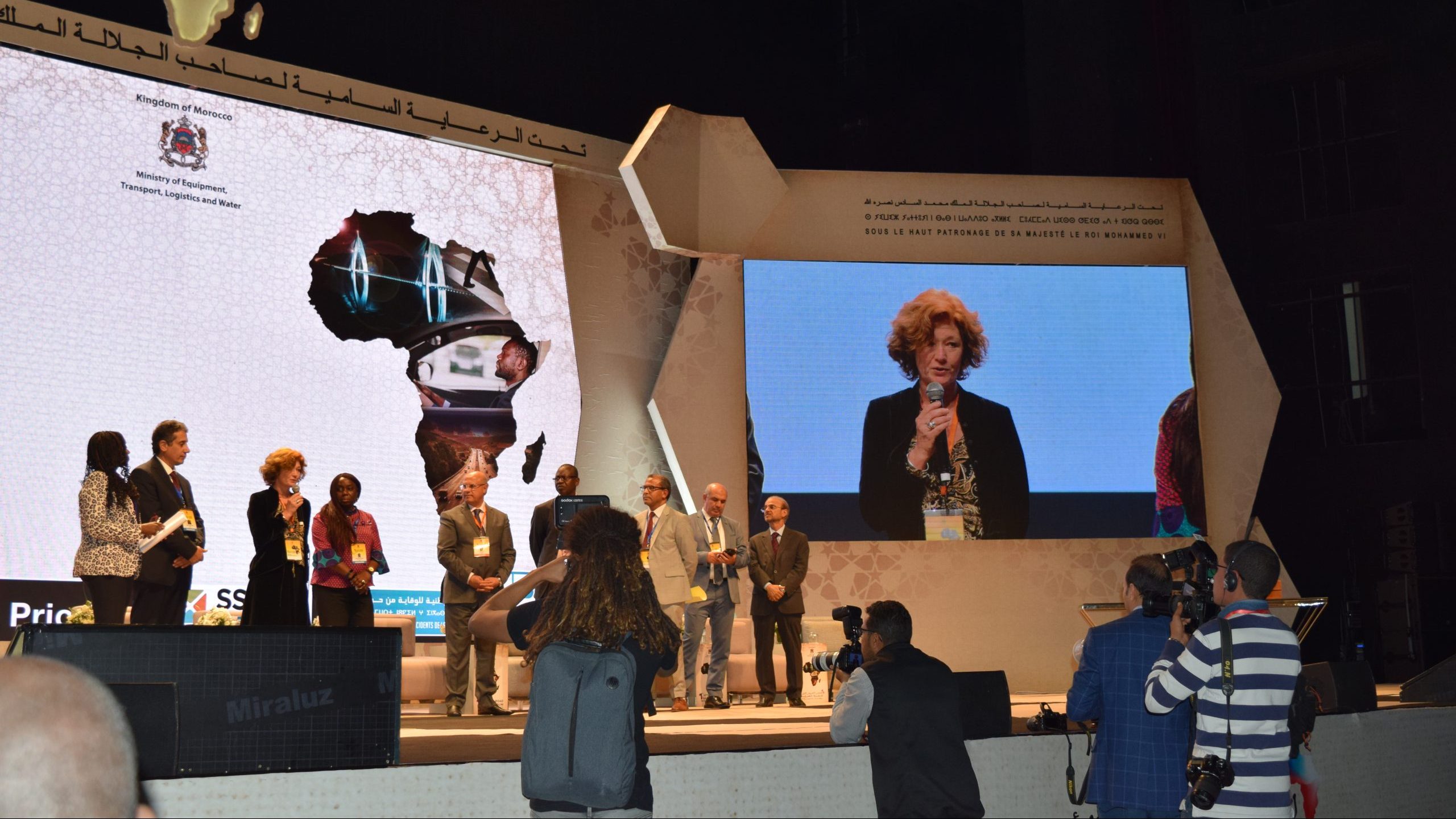
The Alliance’s Africa Chapter was launched in 2018 to unite road safety NGOs in Africa more closely, harness their joint experience, build their capacity and amplify their advocacy voices with their governments. It now has 95 members in 32 countries across the continent. The Chapter provides collaboration opportunities, gives NGOs access to parliamentarians and global and regional partners, provides tools and programs to build capacity for advocacy and accountability, and facilitates research that strengthens NGOs’ voice in the region.
To find out about some of the initiatives that the Chapter is involved with and its plans for the future, we interviewed Patrick Kinyanjui, the Alliance’s Africa Chapter Coordinator, and members of the Africa Chapter Advisory Committee, which consists of Bright Oywaya, Ahmed Shelbaya, Awa Ndeye Sarr, and Horst Heimstadt.
Patrick: “Since the Africa Chapter was launched, we have seen closer interaction between NGOs and regional stakeholders and with national governments, underpinned by stronger peer learning and peer support.”
Bright: “The Africa Chapter has brought together NGOs that have comparable political and economic backgrounds. This has enhanced the level of conversations around effective advocacy. The Chapter has also been instrumental in peer learning as NGOs that are at different levels have shared their experiences.”
Ahmed: “The Global Alliance of NGOs for Road Safety is a critical stakeholder advancing safe mobility globally and regionally. One of the main approaches for advancing road safety is supporting its member NGOs, empowering them, but in addition holding stakeholders involved in decision making accountable. For the before mentioned to be achieved it is critical to tailor these strategies to regional and local contexts. That’s exactly what the Africa Chapter of the Alliance has been focusing on during the past period; assessing then executing the sub-strategies and tactics that could move the needle in Africa. The chapter took different approaches including establishing an efficient governance system; working along different levels stakeholders in Africa; assessing where the different countries and regions stand in terms of the safe system approach as well as mobilizing critical tools available that may advance safe mobility in Africa.”
Horst: “The Africa Chapter provides for networking opportunities which assist NGOs in the practicality of the implementation of their vision, it furthermore provides for capacity building requirements.”
Key highlights:
Patrick: “In the years ahead, I would like to see the Africa Chapter to be recognized as the undisputed voice of civil society advocating for road safety in Africa. It is also our ambition for the Chapter be at the forefront of civil society’s role in road safety accountability with more on-the-ground NGO presence across Africa.”
Bright: “I anticipate that the Africa Chapter will grow into a strong movement that will raise a collective voice that will be recognized and respected by governments in Africa and will advocate for prioritization of road safety. This is with the understanding that with 2% of the world’s vehicles, Africa contributes to 16% of road crashes. A unified voice is also critical as NGOs engage the various regional blocs like the African Union. Moving forward I foresee the establishing of a structured peer support from within the continent as part of capacity building.”
Ahmed: “Given the realization of the importance of focusing on Africa in the coming decade as well as the new governance system established for the chapter last year, the Africa Chapter will be playing a critical role in empowering local NGOs, holding stakeholders involved in reducing rates of mortality and morbidity accountable, and collaborating with cross-cutting movements to advance interrelated challenges (climate change, sustainable cities, non-communicable diseases, human rights, democracy, development and others).”
We are delighted to announce that our partnership with TotalEnergies SE has been renewed for a further three years, enabling us to develop the Chapter further. This will ensure the sustainability and growth of road safety NGOs in the region, strengthen partnerships, and maximize opportunities and engagement.